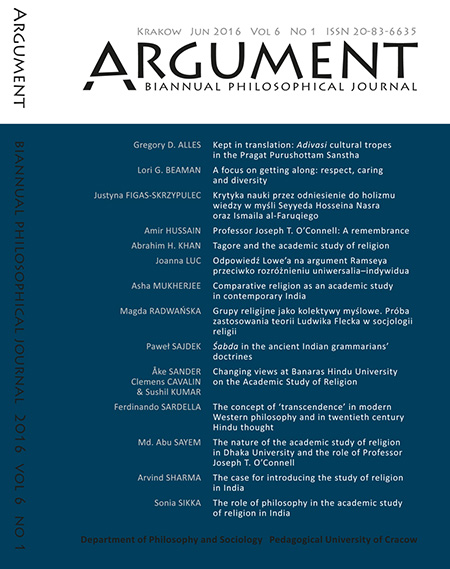The concept of ‘transcendence’ in modern Western philosophy and in twentieth century Hindu thought
Słowa kluczowe:
Bhaktisiddhanta Sarasvati, continental philosophy, Gaudiya Vaishnavism, Hinduism, Søren Kierkegaard, phenomenology, transcendence, VedāntaAbstrakt
‘Transcendence’ has been a key subject of Western philosophy of religion and history of ideas. The meaning of transcendence, however, has changed over time. The article looks at some perspectives o ered by the nineteenth and the twentieth century Anglo‐American and con‐ tinental European philosophers of religion and presents their views in relation to the concept of transcendence formulated by the Bengali Hindu traditionalist Bhaktisiddhanta Sarasvati (1874-1937). The questions raised are what transcendence in the philosophy of religion is, how one can speak of it, and what its goal is. The paper points to parallels and di erences in epistemology, ontology and practice. One di erence is that the nineteenth and the twentieth century Western philosophy of religion tended to assume an ontological di erence between self and transcendence inherited om personalities such as Søren Kierkegaard, but also to explore the concept of transcendence beyond the idea of a metaphysical God. Bhaktisiddhanta, whose foundational thought mirrors medieval Hindu philosophy of religion and the theistic schools of Vedānta, suggests that transcendence has a metaphysical and personal dimension that is to some degree ontologically similar to and directly knowable by the self. Bhaktisid‐ dhanta’s approach to transcendence di ers om Kierkegaard’s and other Western philosophers’ and revolves around the idea of God as a transcendent person that can be directly known mor‐ phologically and ontologically through devotion. The article is a contribution to the history of ideas and the philosophy of religion in Eurasia and beyond.


